
Explore the rich cultural history and ecological diversity of South Africa during an immersive semester abroad.
Spanning the course of three months, students will have endless opportunities to gain hands-on experience learning clinical skills and providing care to South African animals in need. Gain valuable experience learning and implementing the important work conservation and zoo vets do while also enjoying free time visiting some of South Africa’s most popular sites, including going on safari!
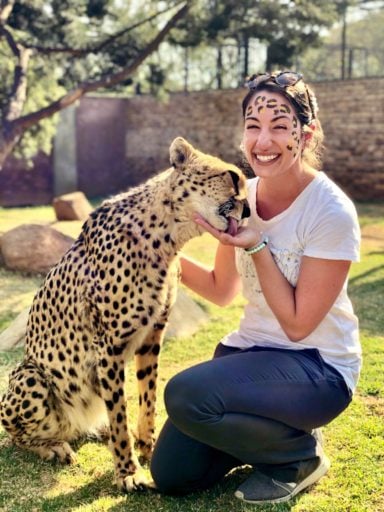
No specific major or past experience working with wildlife is required. This program is limited to 12 students. Students must be at least 18 years old. Most are 18 to 25, but we also accept full-time undergraduates over 25. One semester of Biology is required.
We know that spending a semester abroad can be daunting for students in the sciences. We’re available to answer all your questions about credit, financial aid, and coursework to make sure this semester abroad is the perfect fit for you! We are confident that you will find it to be an excellent investment in your academic and career goals, and that this field course experience will deeply enhance your undergraduate education.
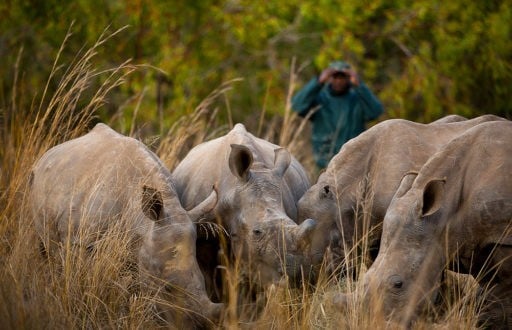
The program includes six two-week courses for which everyone will travel together.
Interested in learning more?
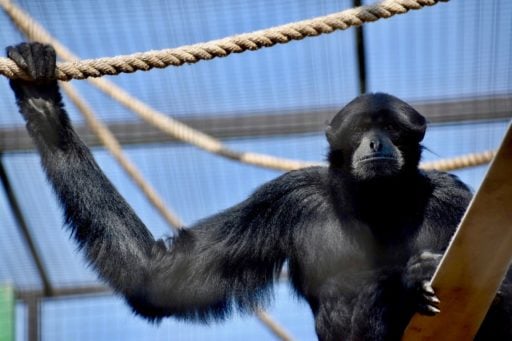
If you plan to go to graduate school or look for a career in the areas of wildlife, zoos, or conservation, on-the-ground experience is incredibly beneficial to your application. This program will give you the chance to learn from experts in the field and get hands-on experience working in a variety of wildlife, zoo, and conservation settings, which will help to set you apart from other applicants and prepare you for your future career.
Many students find that they can use their federal, state, and institutional aid, loans, and scholarships to pay the semester fee. You may be able to use your current semester tuition toward your South Africa Wildlife Pre-vet Semester Abroad and get credit at your school. We can help you with this process. Additionally, students can choose to receive a transcript from our university partner, a fully accredited US-based institution. Please contact us so we can help you figure out your options.
The AVMA says “If you have the opportunity to work… for veterinarians who work with different species, that’s a bonus that can make you more appealing to a veterinary school admissions committee.” We’re proud to offer you that opportunity!
Students will earn approximately 175 vet hours, 100 research hour, and 80 animal hours on this semester.
For programs starting after August 20, 2023, COVID-19 vaccinations are recommended, but they will no longer be required.
All participants must follow the Loop Abroad COVID policies, which include testing negative 2 days before travel, reporting symptoms if they arise during the program, masking or testing if asked to by staff, and isolating if you test positive.
We’re always excited to share what we love about South Africa.
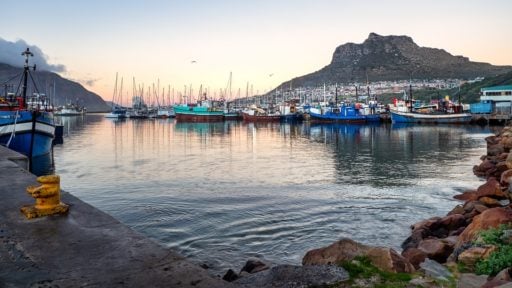
South Africa offers a huge variety of unique opportunities to work with varied wildlife, from huge marine species to “The Big Five” in game reserves across the country. Your group will travel together to course locations and program sites. All housing and transport within South Africa is included in your tuition. Check out where our studies will take us!
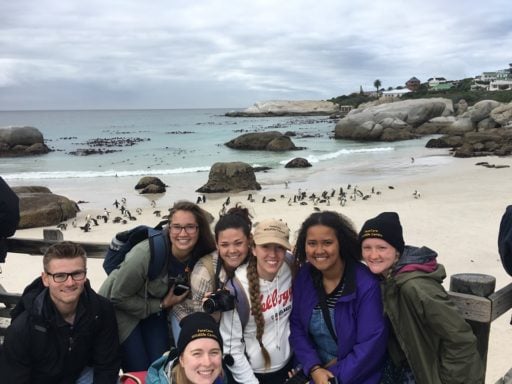
Visiting Robben Island, Table Mountain, and the lighthouse at the point where the Indian Ocean and Atlantic Ocean meet at the southern point of Africa are just some of the special, iconic moments a visitor can have in Cape Town. On our first semester course, which exposes students to the history and culture of South Africa, we will also get opportunities to hear from South Africans about their experience and feelings on their culture, in everything from a township tour to a drum lesson to talking with local students.
Cape Town is more than just monuments and beaches. With excellent food, and lots of markets and public areas to explore, it is a cultural gateway to South Africa. And just a short drive away, one can find seals, whales, and all kinds of wildlife and wild areas to discover, as we’ll see on our trip to Cape Agulhas.
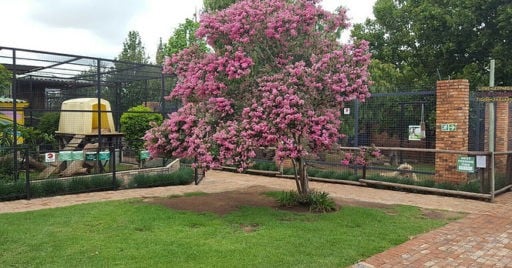
Additionally, the park is one of four African institutions granted membership to the International Zoological Educators.
Lory Park opened in the year 2000 as a bird park, but quickly began accepting injured and trapped animals and has grown to be a sanctuary that is home to the following animals:
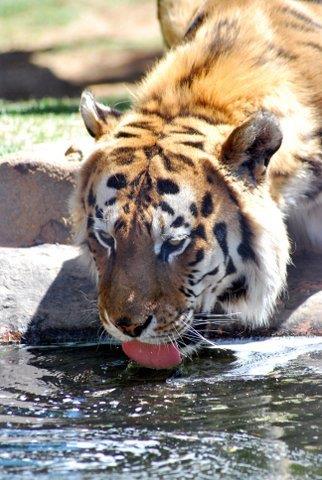 White and tawny lions
White and tawny lions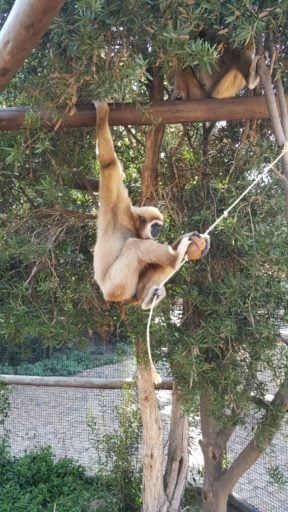 Caracal
CaracalAs you can see, cats, birds, primates, and reptiles make up the majority of the animals that you will work with at Lory Park. The park has a focus on education and conservation, and you will get the chance to visit two schools in the community to help teach about the importance of animals and conservation.
Lory Park is involved in researching and breeding black-footed cats, and will coordinate the research for our Wildlife Research course. Black-footed cats are difficult to breed in captivity, so their successful breeding pair is an important contribution to the survival of this vulnerable animal whose population is decreasing in the wild.
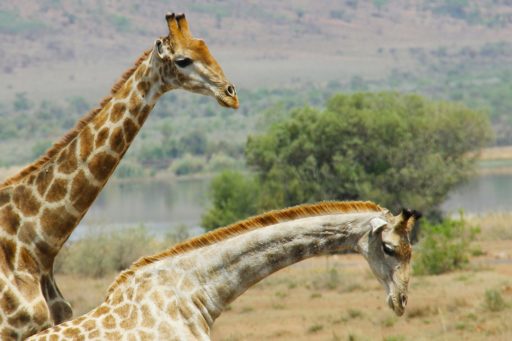
We will have a two-day safari to Pilanesberg National Park, the fourth largest game park in South Africa and home to elephants, rhinos, leopards, buffalo, lions, zebras, giraffes, cheetahs, hyenas, hippo, crocodiles, jackals, wild cats, various antelope species, and hundreds of bird species. Here, guided drives will give us a chance to see lots of African animals in the wild and explore a bit outside of the zoo complex.
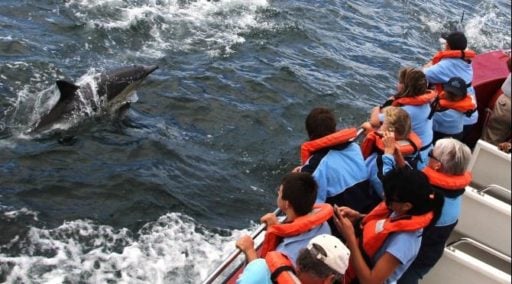
The foundation’s conservation program opened in 2001 and depends on international volunteers to support their meaningful projects and grow conservation efforts in the area. Your participation in conservation and education projects will involve regular hikes and surveys on local beaches to perform marine debris clean-ups; alien plant eradication; river health assessments; assistance at the SANCCOB Seabird Rehabilitation Centre; assistance at the Knysna Animal Welfare Service (KAWS); and environmental education of children at the Siyakula Pre-School Crèche and Sterreweg Special Needs Pre-School.
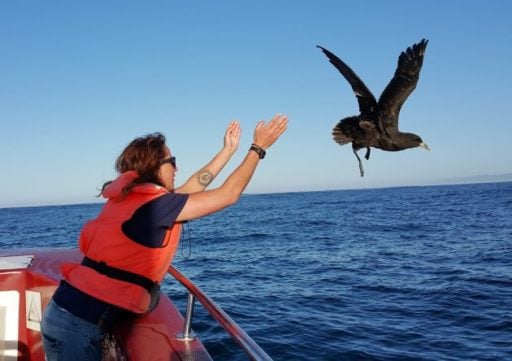
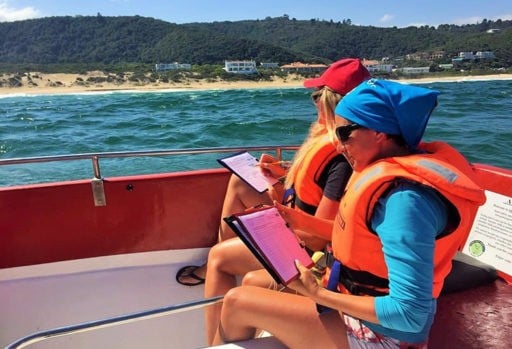
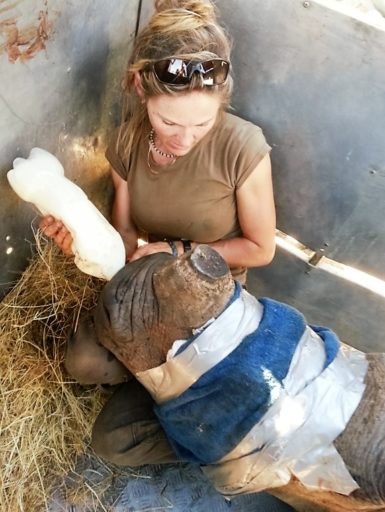
Their vision is to secure free-ranging African Rhinoceros in protected sanctuaries across Africa, to ensure the survival of the species for future generations.
Baby rhinos that are orphaned in the wild rarely survive. The mission of Care for Wild Rhino Sanctuary is to rescue every rhino that is orphaned, to heal them and to provide a totally secure environment where they can grow, roam free, and breed to ensure that there will always be rhinos in Africa.
The Care for Wild Rhino Sanctuary NPC was founded by Petronel Nieuwoudt fifteen years ago in the Limpopo province, with the goal of providing care and rehabilitation to a wide range of animals. Due to the limited level of poaching at the time, only a few rhinos were treated at the centre. In 2011 the centre was moved to Barberton, Mpumalanga. Subsequent to moving to its new property, there was a drastic increase in the number of rhino poaching incidents in the surrounding areas, and a need to care for and rehabilitate the injured and/or orphaned rhinos, whose mothers were killed during such incidents, became apparent. Petronel specializes in the care, hand-rearing, management and capture of infant, injured or orphaned rhinos.

Despite intense counter poaching efforts, rhinos continue to be poached at unprecedented levels throughout South Africa. Care for Wild Rhino Sanctuary NPC is developing a concise strategy to ensure the safety and security of the rhinos under the centres care, and is committed to maintaining the highest level of protection. Such security measures will include (but are not limited to) 24/7 monitoring of individual animal groups, highly trained armed game scouts, mobile response units, communications network, crime intelligence, intense surveillance and live video monitoring, trained counter poaching dogs and their respective handlers, watchtowers, electrified fencing, and aerial support.
Prince Harry serves as an ambassador for Care for Wild, saying, “These baby rhinos are at an orphanage because their mothers were killed by poachers. I can’t say where this is for obvious reasons. But I spent an afternoon with Petronel Nieuwoudt, who runs the orphanage. The youngest rhino was called Don. He was just two months old when he was found in Kruger National Park. Petronel has students and volunteers from all over the world come to look after these orphans. They pay for this experience and that money is used for milk, food, fencing and rangers for security.”
Mpumalanga is known for its beautiful scenery, from mountains and forests to waterfalls and rivers. The area is home to giraffes, zebras, black-backed jackals, blue wildebeest, kudu, warthogs, baboons, and many other magnificent wild mammals. Care for Wild itself may be home to African wildlife other than rhinos who are rescued, cared for, and given a home or prepared for a safe release when possible.
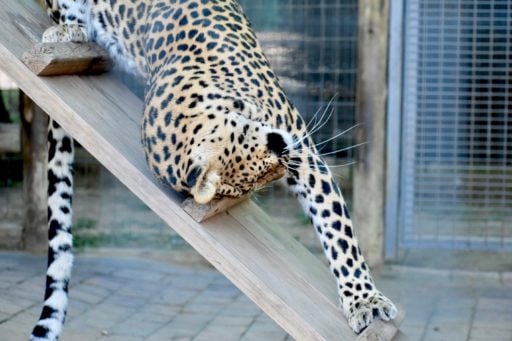
This page is a general overview of the process of South Africa Wildlife Pre-vet Semester Abroad, from applying to attending. For more detailed information on any of these points or personalized assistance, contact us! We are happy to help.
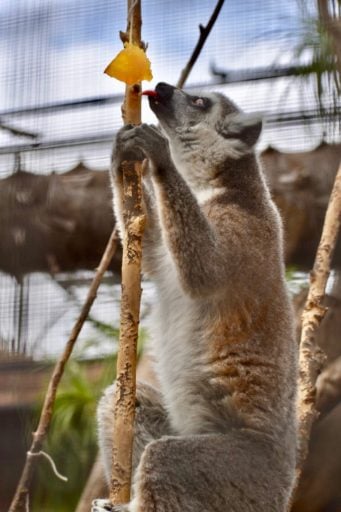
Loop Abroad is not a college. Participants in the South Africa Wildlife Pre-vet Semester Abroad will receive their credits and transcript from University of Findlay, our school of record in the US. For students who are currently in college, we can help you work with your school to transfer these credits. For participants not currently in school, you will receive a transcript from University of Findlay.
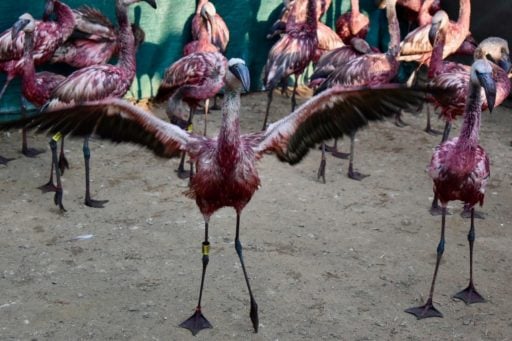
Financial aid options are available, including up to $5,000 in need-based aid from Loop Abroad and outside scholarships of up to $5,000. If you are currently a college student, your semester in South Africa would replace your semester tuition on your home campus. We can assist you in using federal financial aid toward your Loop Abroad tuition.
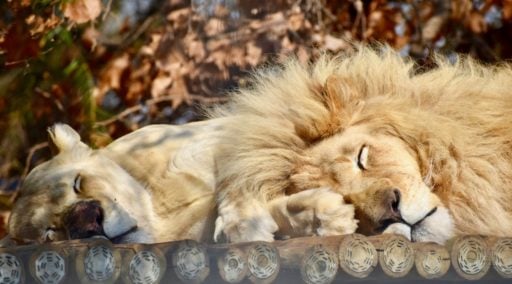
Competitive applicants plan to apply to vet school or otherwise work in a career with animals, have a 3.0 GPA or greater, and have a demonstrated interest in working in animal science. No specific skills or experiences are required. We do require one course of college-level biology as a prerequisite (AP Bio or IB Bio would meet this requirement, and there are affordable online alternatives available.)
Step 1: Talk to your advisor. We suggest that you meet with your advisor about a semester abroad and the credits you would be transferring into your degree program. Usually, your advisor will want to see syllabi for all the courses. For a copy of all the syllabi, please send an email to [email protected]. Ask your advisor to approve the credits so that you may approach your study abroad office with your plans to participate in a Loop Abroad semester. Note that the course load of 18 credits is a complete semester, and you are expected to participate in all courses and class meetings during the semester.
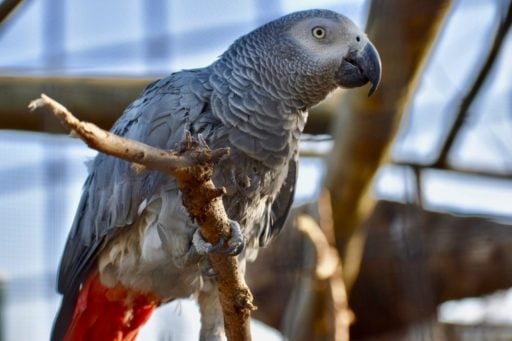
Step 3: Secure funding for your semester. Once you are admitted and have your credits and study abroad experience confirmed, it is sometimes possible to use your federal financial aid if you are currently enrolled in a US college or university. Your financial aid office can help you with this process, and we will also assist you. In some cases, your school will require specific documentation from Loop Abroad and we are able to work with them to make this semester financially feasible for you. Note that the semester tuition includes housing, meals, and even books, some students actually find it costs them less to go abroad than to stay on their home campus for the semester.
Step 4: Pay deposit and submit necessary paperwork. Before you can be confirmed as a participating student, you must pay the deposit to hold your spot in the upcoming semester. There are only 12 spots available in order to keep the class sizes small. You will also have to complete enrollment paperwork that includes a medical form.
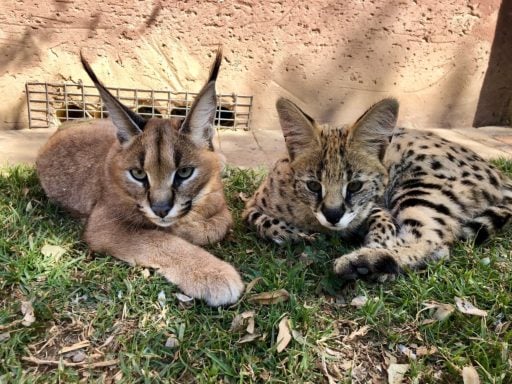
Step 6: Arrival in South Africa. You will be met by Loop staff when you arrive and taken to your group housing. You will have an in-country orientation and chance to get to know your group before you start your veterinary courses.
During your semester abroad in South Africa, staff is available 24/7 to support you. You will live with your fellow students and your travel between course locations will be arranged as a group by Loop Abroad, with staff traveling with you. The semester is a busy, packed schedule with lots of places to go and lots of work to do, and we’ll do it all as a group. If you have questions about the South Africa Wildlife Pre-vet Semester Abroad, from applications to safety and everything in between, reach out to us!
Hands-on wildlife and conservation experiences from big cats to marine life.
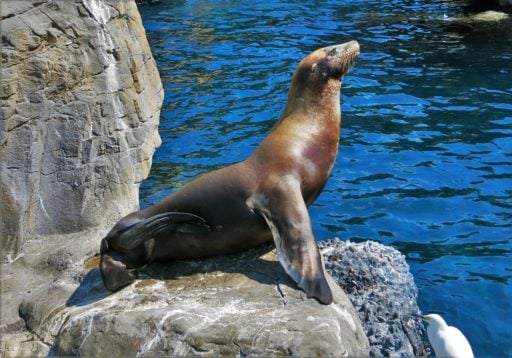
The semester in South Africa is comparable to a full semester of courses including labs at your home institution.
Please note: we have listed credits based on the number of hours of instruction, homework, and fieldwork in each course. But the number of credits you receive at your school will vary depending on how you apply for credit and how your school grants it. Through our university partner (School of Record), we can offer all students a full transcript.
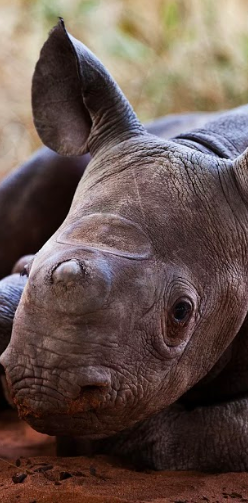
Course topics and itineraries are subject to change based on the discretion of instructors.


The history portion of the course will focus on recent South African history from Apartheid until now, and its effects on everything from economics to education within the country. You will have opportunities to hear from and talk with South African people about their lived experiences, in addition to exploring history through visits to locations such as Robben Island, the townships, and museums throughout Cape Town.
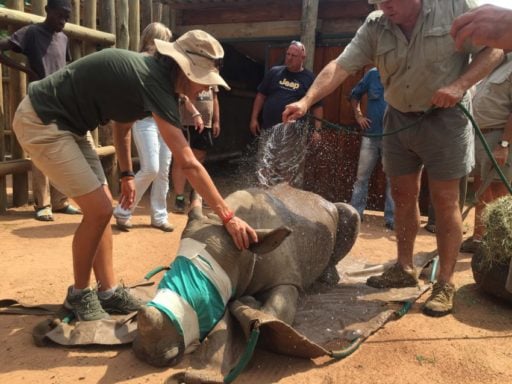
Care for Wild Rhino Sanctuary is one of the largest rhino sanctuaries in the world (and the only rhino rehabilitation center accredited by the National Parks Board of South Africa), and as it does not admit paying tourist guests or safari tours, taking a course on-site gives you a unique opportunity to live and work inside this renowned wildlife conservation project. The sanctuary is home to other African animals, including hippos and meerkats, and will provide opportunities to learn from leading conservationists.
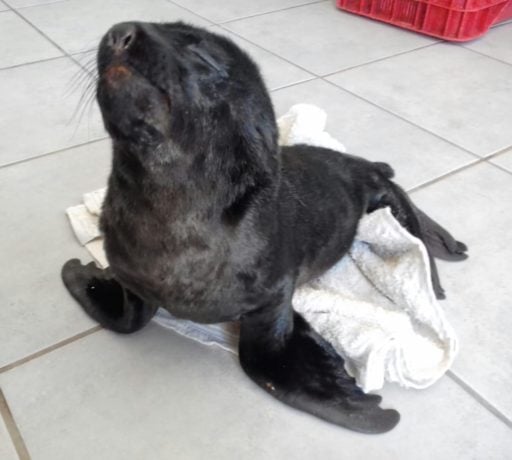
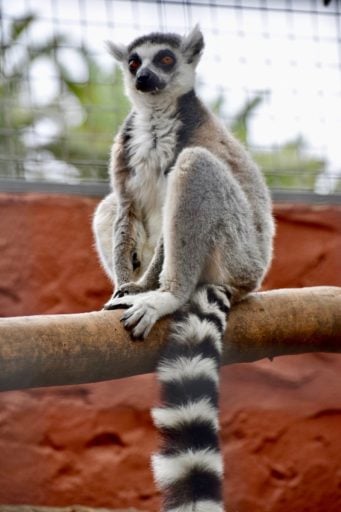
Your work with and coursework about these animals will be supplemented by veterinary labs such as necropsies and lectures from veterinarians and expert guests. In addition, we will spend a weekend on safari in the Pilanesberg Game Reserve, one of the largest in South Africa and home to elephants, rhinos, leopards, buffalo, lions, zebras, giraffes, cheetahs, hippos, crocodiles, and hundreds of other species.
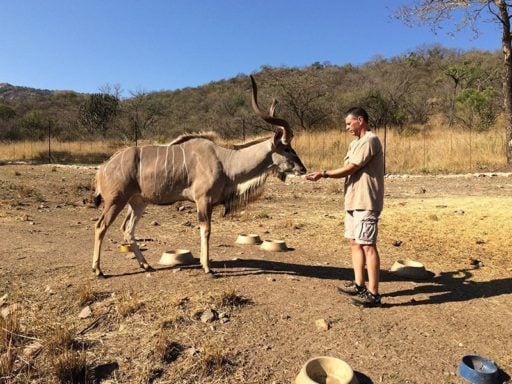
Our time in the field includes game drives and exploration of wild areas, necropsies and other laboratory work, visits to research stations and labs, discovering anti-poaching tactics, working in a wildlife clinic, a medical community visit including both human and animal clinics, and practice bushwalking and tracking.
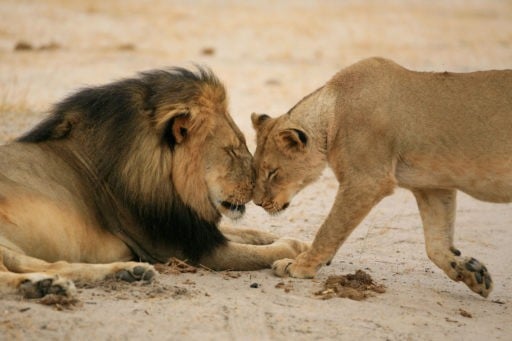
Students may help monitor camera traps, maintain the grounds, prepare food, observe behavior, and assist with veterinary care. Please note that this course does not guarantee hands-on work with any of the big cats (the Zoo Husbandry and Management course does provide interaction with some of the cats).
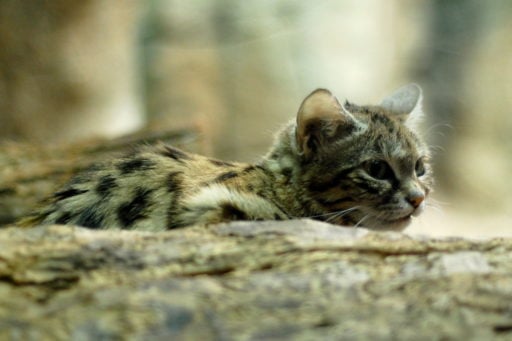
This course will focus on understanding aspects of wildlife research such as designing research questions and collecting, analyzing, and presenting data. Students will participate in field research on the black-footed cat, a vulnerable species with a decreasing population, as a way of practicing and implementing the skills they are learning in the classroom.

When you apply to vet school, you have to describe and record hours for three kinds of experiences: research experiences, veterinary experiences, and animal experiences.
In our South Africa semester, you’ll log 175 hours working with a veterinarian, 100 research hours, and 80 additional animal hours.
Studying abroad in South Africa means you’ll get to experience a ton of different areas of veterinary medicine, which can be an advantage for admission to vet school. North Carolina State University’s College of Veterinary Medicine says:
“… [S]upervised experiences in three or more different areas are highly recommended for a competitive application…. small animal, large animal, research, food animal production, exotic, aquatic, wildlife, zoological medicine”
This semester offers veterinarian-supervised experiences in four of these areas!
Referring to who gets into vet school, the AVMA says…
“If you have the opportunity to work …for veterinarians who work with different species, that’s a bonus that can make you more appealing to a veterinary school admissions committee. Get as much experience as you can while you have the opportunity.”
This semester is organized into block courses. You’ll have one course at a time so you can focus on learning the material and skills most relevant to each host organization. You can also plan to really get to know your vet instructors because of the small class size and hands-on nature of your coursework. That means you get to learn about their experience in the veterinary profession and they get to know you well enough to write a good recommendation letter.
We offer faculty-led workshops and advising to help you with every aspect of applying to Veterinary School and advancing your career. Covered topics include:
We know studying abroad is a big investment. If you are currently in college or university, we can help you to work with your school to get credit for your Loop Abroad courses and be able to access federal financial aid to use toward your Loop Abroad tuition. You may even be able to apply some or even all of your home institution semester tuition toward your South Africa Wildlife Pre-vet Semester Abroad tuition, which can mean that studying abroad costs the same or even less than spending your semester on your home campus.
If you are considering applying, let us know! We can walk you through each step from talking with your school advisors to making the program affordable for you.
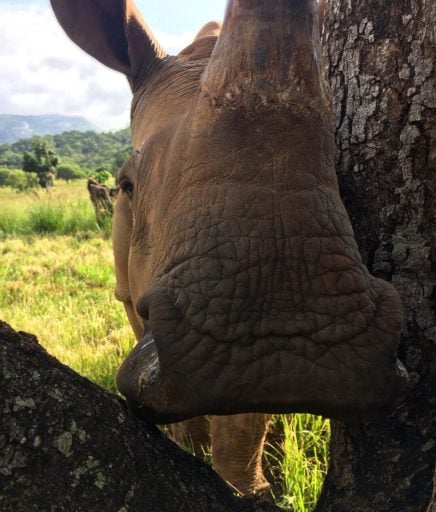
That means that you do not pay any additional fees for labs, books, housing, meals, or in-country transport for courses during your program.
Note: International airfare to and from South Africa are not included. There are two books you are asked to purchase and read before the semester begins (approximately $30). You are required to be rabies vaccinated in order to begin the program.
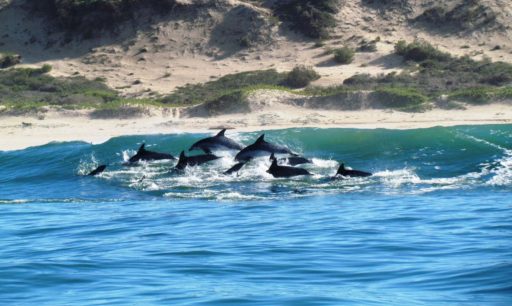
Because we offer transcripts through our US university partner (School of Record), you may be able to use your state, federal, and/or institutional aid and loans towards the semester tuition. For students who are currently in college or university, you may find that you can use some or even all of your home institution semester tuition toward your South Africa Wildlife Pre-vet Semester Abroad tuition. Generally, the first step is to get your credits approved by your current school – and we are happy to help!
There are also several outside scholarships designed for students studying abroad. The Gilman Scholarship (for up to $5,000) is an excellent alternative for US citizens currently enrolled in college and receiving a Pell Grant. We suggest that you talk to your financial aid office for recommendations. We will support your application!
Loop Abroad also offers a limited number of awards for semester students ranging from $500 to $5,000 based on qualifications and financial need.
If you aren’t sure where to start, please contact us! The sooner you start the process, the easier it is to communicate with your school about credits and financial aid.
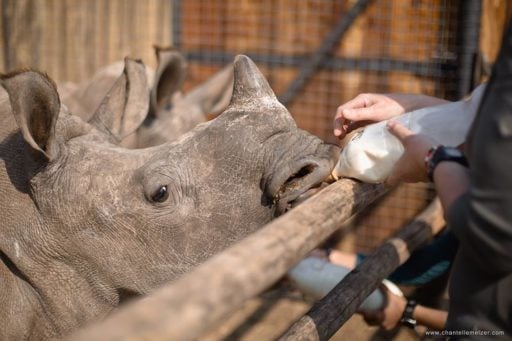
We welcome students to study with us as a gap year after high school to decide if they want to pursue a veterinary education. We also welcome students who have completed an undergraduate degree but want to enhance their vet school application.
We are proud to often host students on their first trip abroad as well as students who are seasoned international travelers. You do not need to be a US citizen to apply.
We understand studying abroad is a big decision — we’ll walk you through every step. We can help you figure out if it’s a good fit and how research, internship, and course credit as well as financial aid would work for you.

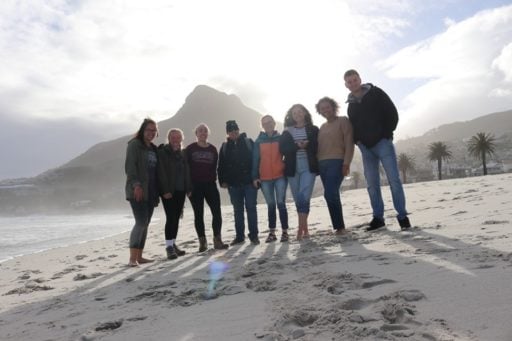
We’re looking for students who understand what the South Africa Wildlife pre-vet Semester Abroad entails and are eager to work hard, support their classmates, and get their hands dirty.
We don’t require any specific animal experience, but a demonstrated interest in working with animals or in veterinary medicine will strengthen your application. We don’t require a certain GPA, but strong applicants generally have a GPA of 3.0 or greater. Your application is more than just your GPA. We do not consider standardized test scores in our admissions decisions.
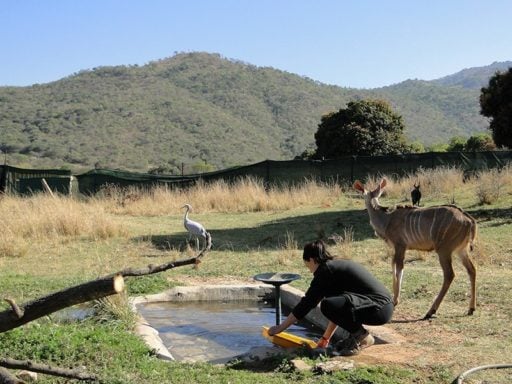
The application for the South Africa Wildlife Pre-vet Semester Abroad has a $50 application fee, and will require your transcript, resume, 2 academic or professional references, and includes an essay component. Please note that upon acceptance to the program, your spot is not guaranteed until the non-refundable deposit of $5,000 is paid.
If you’d like our help before applying to make sure that your credits will transfer to your current college or university and that you’ll be able to successfully fit the South Africa Wildlife Pre-vet Semester Abroad into your academic schedule, please contact [email protected] for assistance.
Rolling admissions; applications open now!
There are lots of ways to help fund your online and travel programs with Loop Abroad, and we are here to help!
Scholarships are a terrific way to cover some or all of your tuition for a Loop Abroad program. When you look for scholarships for pre-vet programs, you need to look at all your options!
University Scholarships
The Gilman Scholarship could fund $5000 of your tuition and the next deadline is October 5, 2023, at 11:59 pm Pacific Time!
The Gilman Scholarship was designed to help students of limited financial means have the opportunity to study abroad – online or in-person. Nearly a third of applicants are awarded the scholarship! This is a great opportunity to help cover your tuition.
Students can receive up to $5,000 for travel or virtual programs. The scholarship can be applied to any of our online programs, to our semester programs, or one of our 2-week programs.
Along with their application, students must submit two essays, the Statement of Purpose Essay, and the Community Impact Essay. Students must also upload their transcripts (unofficial or official). For more information on the application guidelines, please click here.
See the official website and read about Loop Abroad students who have received this scholarship. If you are a US citizen receiving a Pell Grant and currently enrolled in college or university, we encourage you to apply for this scholarship. The October 2023 Deadline application will open in mid-August 2023 for applicants whose in-person programs or internships start between May 1, 2023 to April 30, 2024. This cycle encompasses Summer 2023, Fall 2023, Academic Year 2023-2024, and Spring 2024 programs or internships. The application deadline is Thursday, October 5, 2023 at 11:59pm Pacific Time, and the advisor certification deadline is Thursday, October 12, 2023.
Loop Abroad has committed $10,000 in annual funding to program participants joining us from a military background. If you are active duty military or are a veteran, and are considering a career in veterinary medicine, we hope you’ll consider applying to join a Loop Abroad program.
Scholarships of $500 – $1,000 are available for in-person programs. Scholarships of $1,000 – $3,000 are available for select self-paced virtual programs, which can cover the full cost of a virtual program.
Please find more details here.
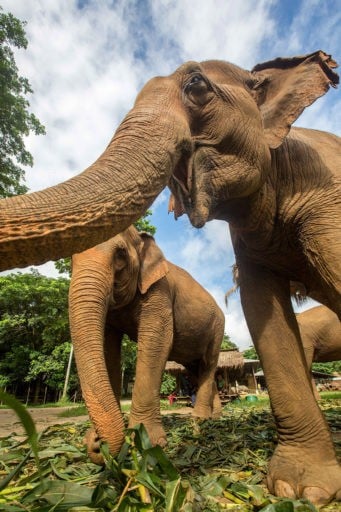
Who can apply: This scholarship is open to all students age 18 and over. You do not have to be a US Citizen. You do not have to be currently in school.
You do not have to complete an application to Loop Abroad in order to be selected for the scholarship. The scholarship winner must be able to complete the Loop Abroad enrollment paperwork, requiring a doctor’s signature, and must meet all safety requirements of program enrollment.
Note: if you have already applied to Loop Abroad and been accepted, you can still apply for this scholarship. If you have made any payments toward tuition and later receive the scholarship, your payments will be refunded.
Criteria for selecting the scholarship recipient:
We will consider financial need, commitment to conservation and/or animal science, academic performance, and ability to be a positive team member as factors in our decision. We are not looking for the applicant with the highest grades or the most animal hours. We are not looking for the applicant with the saddest story. We are looking for a student who embodies Loop Abroad’s values of teamwork, commitment to a cause, and hard work, and for a student who would not be able to otherwise afford Loop Abroad tuition (whether because of household income or recent change in circumstances).
Scholarship details:
This scholarship covers tuition to one Loop Abroad program with a duration of 1 to 2 weeks in the summer of 2024, excluding private groups or faculty-led groups. It is not transferable to other individuals or future semesters. It does not include airfare, travel or medical insurance, passport, college credit fees (optional), visa (if required), or any optional incidentals during your program. Please understand that a full tuition scholarship does not make travel completely free: passport, airfare, and other expenses depend on the program location.
Once a scholarship winner is chosen, the winner will need to complete full application paperwork for Loop Abroad. The winner must then also complete the enrollment paperwork, which includes waiver forms and a medical form signed by a doctor indicating that you are able to safely participate in a travel program.
The scholarship winner agrees that Loop Abroad may publicize the awarding of the scholarship, including the recipient’s information such as name and current university. The scholarship winner will be subject to all regular rules of participating in a Loop Abroad program.
How to apply:
To apply, you must complete the following three steps:
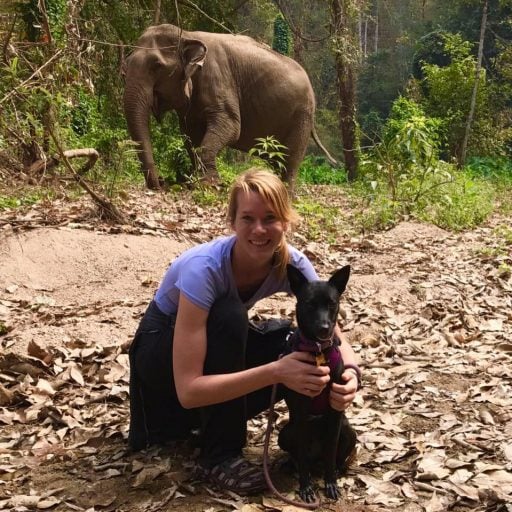
Details:
The scholarship will be credited toward tuition for the winning student toward the Loop Abroad program of their choice.
The scholarship is non-transferable. If the student cannot attend, the scholarship will be void – it is not a cash prize and cannot be paid as such. Applicants must be over the age of 18. Citizens and residents of any country may apply.
Loop Abroad reserves the right not to grant a travel scholarship if there are no qualified applicants who have applied by the deadline.
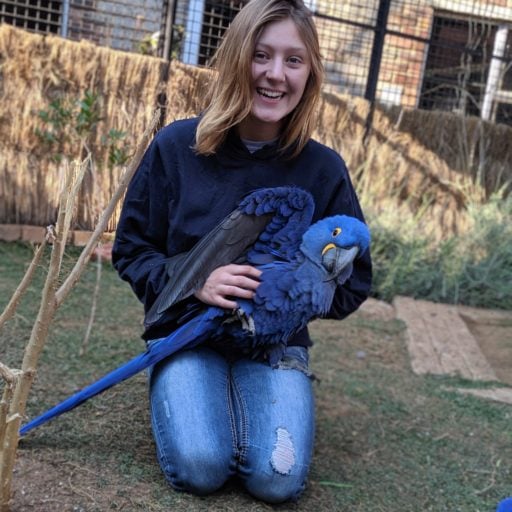
This scholarship is open to US citizen undergraduate students who are child dependents of active duty service members and receive any type of Title IV federal financial aid. Students can receive awards of up to $5,000 for 2+ weeks of international travel or online programs. The scholarship can be applied to any of our online programs, semester programs, or 2-week travel programs.
The deadline for this scholarship is January 4, 2024. More details here.
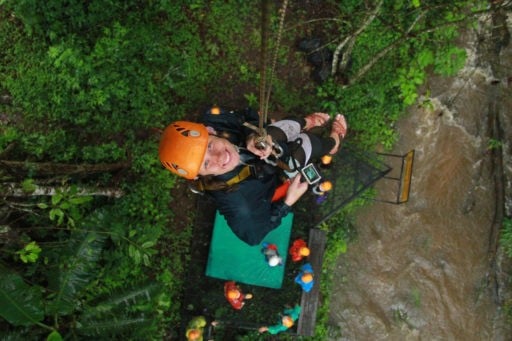
Recipients can receive up to $3,000 in awards for summer programs. This scholarship can be applied to our Thailand programs for 2+ weeks.
In order to apply, students must fill out an online application. Read the scholarship instructions here and the eligibility requirements here.
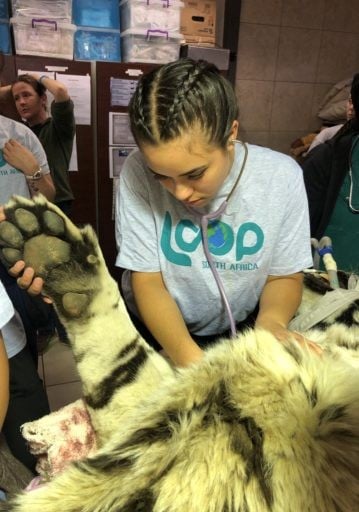
This scholarship is open to US citizens or permanent residents currently enrolled as an undergraduate at a college or university in the US. Scholarships range from $1,250 – $10,000.
Along with their application, students must submit a financial aid form (filled out by the financial aid office at their school), one recommendation letter, and a copy of their unofficial transcript.
Students may review the scholarship and application instructions here.
Scholarships of note that you can apply for through the Fund for Education Abroad include:
SeniorCare.com continues to bring more awareness to the key issues we face as an aging population. For the 8th consecutive year, we will be awarding an annual college scholarship to an individual that best demonstrates to us why “Aging Matters” to them. A $1500 scholarship will be given annually to a selected college student that currently cares for an aging loved one, works within the senior community, or intends to pursue a career that will have an impact on the elder population. Any existing student (or incoming freshman), in good academic standing, at a 2 or 4-year accredited college can apply for this scholarship. The recipient will demonstrate a unique and admirable understanding and desire to show us that “Aging Matters” to them.
All applicants can get more information and apply online here. Applications are due May 15, 2024.
FirstTrip.org offers scholarships for students who are studying abroad for the first time. At the time of writing, Thailand, Costa Rica, and Belize programs would be eligible for these $1,500 scholarships. The application process for these scholarships does not involve writing an essay or meeting a GPA requirement. Only applicable to travel to countries ranked lower than very high on the Human Development Index (this will apply to Loop aBroad programs in South Africa, Thailand, Costa Rica & Belize. Recipients are requested to provide concise testimonials about their initial international experiences. Previous awardees have often shared remarkable photos and videos!
Find out more and apply at FirstTrip.org. Applications are rolling and suggested to be submitted at least 3 months before the departure date. They also have funding available for passports ($130) as well as some other supplemental awards.
Open to all travelers! Can be used for anything related to your study abroad trip. $500-$1000 scholarships awarded to two travelers twice a year.
Please find more details here.
$4,500 scholarship. Entry into the sweepstakes is open to full-time students currently enrolled in a recognized U.S. college or university, as well as high school seniors set to become full-time students at an accredited U.S. college or university, provided they uphold a minimum GPA of 2. Sweepstakes run until 9 am ET on August 15, 2023.
Please find more details here.
Open to those who are currently an enrolled undergrad or graduate student at an accredited college or university. Scholarship winners are paid the funds into their financial aid account.
Application Deadline: August 10, 2023
Please find more details here.
$2,000 will be given to one winner at the end of every month of the year. Open to all enrolled students (parents of students can apply on their behalf!)
Application Deadlines:
August 31, 2023
September 30, 2023
October 31, 2023
November 30, 2023
December 31, 2023
Please find more details here.
Open only to undergraduate students who identify as LGBTQ+ and are currently enrolled in university. Applicants must be receiving credit for the program.
Application Deadline: September 20, 2023, 11:00 PM
Please find more details here.
Open to any citizen and/or resident of the US enrolled full-time at an accredited college/university. A $1500 scholarship is offered twice a year.
Application Deadline: Fall semester March 15, 2023 at 11:59pm PST to be eligible for the scholarship.
All Spring semester scholarship entries must be received no later than October 15, 2023 at 11:59pm PST to be eligible for the scholarship.
Please find more details here.
Open to all high school seniors or current full-time college freshmen. $5,000 offered twice a year (during the Spring and Fall semesters)
Application Deadline: Applications accepted year-round
Please find more details here.
Open to students in their final year of high school with a minimum of 3.0 GPA who are planning to pursue a degree at an accredited US institution
Application Deadline: October 2, 2023, by 5 pm Eastern.
Please find more details here.
The opportunity is available to individuals all around the globe. To be eligible for entry, you need to be at least 18 years old and not fall under the purview of 18 U.S.C. § 1033. 7 individuals will be granted $1,000 each.
Application Deadline: August 31, 2023, 11:59 p.m. Eastern Time
Please find more details here.
This $1,000 scholarship is for First Generation College Students and is open to registered Cappex users who are 13 years old or older, living in the U.S., and either currently enrolled or planning to attend a college, university, or trade school in the U.S. within four years. If you’re under 18, you need your parent’s permission.
Application Deadline: None
Please find more details here.
This scholarship is available to both undergraduate and graduate students, 18 years or older, who are enrolled in any accredited college or university in the United States, as well as high school seniors taking classes. The DOG iD scholarship offers a single payment of $1000 that can be used for tuition and other educational expenses. To enter the scholarship competition, submit a 500-word essay discussing one of the topics given about pets.
Application Deadline: December 31, 2023
Please find more details here.
This scholarship is available to both undergraduate and graduate students, 18 years or older, who are enrolled in any accredited college or university in the United States, as well as high school seniors taking classes. The Road iD scholarship offers a single payment of $1000 that can be used for tuition and other educational expenses. To enter the scholarship competition, submit a 500-word essay discussing one of the topics given about sports.
Application Deadline: December 31, 2023
Please find more details here.
This scholarship is available to both undergraduate and graduate students, 18 years or older, who are enrolled in any accredited college or university in the United States, as well as high school seniors taking classes. This scholarship offers a single payment of $1000 that can be used for tuition and other educational expenses. To enter the scholarship competition, submit a 1000-word essay on a meaningful event that changed your life.
Application Deadline: August 22, 2023
Please find more details here.
Scholarships valued at $10,000 each, are eligible for high school students in the US who have encountered and successfully conquered significant challenges during their early years. Applicants must show a strong dedication to pursuing and successfully obtaining a bachelor’s degree at a recognized non-profit public or private educational institution within the US and demonstrate a significant financial need with an adjusted gross family income of $55,000 or less is a requirement. Active involvement in co-curricular and community service activities, along with the display of integrity and resilience when overcoming challenges, are also crucial attributes.
Application Opens: December 1, 2023
Please find more details here.
This initiative aims to grant $500 scholarships to essay participants who are either entering college or are presently enrolled in higher education. The theme of the 750-word essay should revolve around the concept of promoting safer driving practices.
Application Opens: September 1st. Application Closes: November 30th. Announced January 1st, 2024
Please find more details here.
Scholarships ranging from $250 to $1800 are available. The selection of recipients is determined by academic accomplishments, assessment of a personal essay, as well as a personal interview or phone conversation.
Application Deadline: February 1st, 2024
Please find more details here.
(High school grade 11-12) To be eligible for this $20,000 opportunity, students should be engaged in a college readiness program and be on track to successfully complete their studies at an accredited high school within the current academic year. They should also demonstrate a financial need, be receiving a federal Pell Grant during their first year of college and achieve a minimum GPA of 2.4.
Application open: October 1st, 2023. Application Closes: December 1st, 2023
Please find more details here.
Candidates must qualify as a lineal descendant of a Korean War veteran who actively served in Korea from June 25, 1950, to January 31, 1955, as officially recognized by the U.S. Department of Veterans Affairs. They must attend an educational institution situated within the KASF Northeastern Region, which includes Connecticut, Maine, Massachusetts, New Hampshire, New Jersey, New York, Rhode Island, and Vermont.
Application Deadline: (CLOSED for 2023)
Please find more details here.
£500 will be awarded to students of a study abroad program. This scholarship is open to undergraduate students in the UK enrolled at an institution affiliated with BUTEX (full list here)
Application Opens: (OPENING SOON).
Please find more details here.
$8,000 for 8-11 weeks. Suitable for Semester students. This is only for students pursuing majors in fields categorized as STEM (science, technology, engineering, and mathematics) who are qualified for summer-specific programs lasting a minimum of eight weeks. (Not applicable for study in the US, Europe or Australia).
Application Deadline: January 31, 2024
Please find more details here.
Diversity Abroad offers $500 stipends to successful applicants of their Overseas Ambassador program. This funding supports volunteering or studying abroad during Spring or Fall semesters. Ambassadors are required to share their experiences through blogging to inspire others within the Diversity Abroad community to travel. Eligible candidates are full-time students or recent graduates from U.S. universities with a minimum GPA of 2.75. Enthusiasm, creativity, and a strong interest in international engagement are essential traits for applicants.
Application Deadline: Rolling basis
Please find more details here.
Receive $2,000 awards for international travel to engage in cross-cultural experiences. Eligible candidates must be aged 18-30, U.S. citizens or permanent residents, demonstrate financial need, and live or study in one of the 13 metropolitan areas where HI USA is active.
Application Opens: Currently on hold, sign up here for news and updates.
Please find more details here.
This $2,000 Sallie Mae Scholarship Sweepstakes is open from January 01, 2023, to December 31, 2023, for legal residents of the 50 United States, the District of Columbia, and US Territories aged 17 or older. Eligible participants include parents with college/university-enrolled children, college/university-enrolled students, parents with high school senior children, and high school juniors or seniors planning to enroll in a US-based accredited college/university within a year of high school graduation.
Application Deadline: At the end of every month.
Please find more details here.
The $2,000 No Essay Scholarship is open to high school and college students, and those planning to attend college or graduate school within the next year. It’s a straightforward scholarship without an essay requirement. The prize money can be used for tuition, housing, books, or any educational costs. Applications are accepted monthly, and a new winner is chosen each month.
Application Deadline: At the end of every month.
Please find more details here.
Niche offers a $25,000 scholarship once a year. High school seniors and college students are eligible, as well as those planning to attend college or graduate school within the next year. By completing a Niche Profile with details like GPA and high school, you’ll automatically be considered. The scholarship is available to individuals with US citizenship or a valid Visa/US passport.
Application Deadline: September 27, 2023
Please find more details here.
The $25,000 “Be Bold” Scholarship is a no-essay award granted to the applicant with the most daring profile. Instead of focusing on being the “best” or “most accomplished,” the scholarship values qualities like earnestness, determination, and drive. The scholarship recipient will be the student whose profile best embodies these bold characteristics.
Application Deadline: Monthly
Please find more details here.
The FEA supports eligible U.S. undergraduates with limited accessibility to study abroad. The reviewers evaluate criteria such as financial requirements, demographic aspects, and academic readiness to determine the beneficiaries of the scholarships. Applicants must be pursuing an undergraduate degree at a higher education establishment in the U.S. and earning academic credits at their home institution for the study abroad program.
Application Deadline: Spring closed, summer opening soon
Please find more details here.
Two winners will be selected for the $1,000 scholarship, with each recipient receiving $500. The funds will be deposited into their University’s finance/bursar account to assist in covering tuition expenses.
Application Deadline: Awaiting update.
Please find more details here.
This scholarship is open to high school seniors who are descendants of veterans serving in the U.S. Armed Forces within specified dates. Membership in The American Legion Family is not obligatory. Applicants must have completed 50 hours of verified community service during their high school years. The scholarship supports attendance at accredited higher education institutions.
Application Deadline: March 1, 2024, 11:59 PM Eastern.
Please find more details here.
To be considered for this scholarship, the following criteria must be met: Applicants should be enrolled full-time at a UNCF Member College or University, complete the Free Application for Federal Student Aid (FAFSA). Demonstrated financial need, have a minimum cumulative GPA of 2.50 on a 4.00 scale. The scholarship is open to individuals falling under various pursuit classifications, including College 5th Year Seniors, Doctoral/Professional Students, College Freshmen, College Seniors, College Sophomores, Master’s Students, College Juniors, and students affiliated with UNCF-associated College/Universities Groups.
Application Deadline: March 28, 2024
Please find more details here.
The Vince’s Pre-Veterinary Student Scholarship extends two annual $500 awards to aid undergraduate students pursuing pre-veterinary or animal science programs in the U.S. with their educational expenses. You must be a current undergraduate college student with a minimum GPA of 3.3, focusing on academic interests encompassing healthcare, as well as animal/veterinary sciences. To enter, you will need to write a 500 work poem.
Application Deadline: October 15th, 2023
Please find more details here.
Applicants for this scholarship must be a current full-time enrollment at a U.S. college/university and a minimum GPA of 3.5 supported by an unofficial college transcript. This scholarship is for those pursuing degrees in Science, Technology, Engineering, or Mathematics (STEM) fields. A total of twelve $2,500 scholarships are awarded each year.
Application Deadline: Rolling Basis
Please find more details here.
Qualifying applicants are Black/African American, maintaining a minimum cumulative GPA of 3.0 on a 4.0 scale, completing the Federal Student Aid (FAFSA) form, demonstrating verified unmet financial need through their college or university, being enrolled full-time as a sophomore or junior in a U.S.-based accredited four-year or two-year college or university, and pursuing majors in fields such as agriculture, computer science, management information systems, data and analytics, engineering, business management, information technology management, business, economics, pre-law, finance, insurance, math, statistics, data science, or actuarial science.
Application Deadline: Closed, awaiting update.
Please find more details here.
Sweepstakes of $2,500 are given monthly to high school seniors, undergraduate and graduate students, as well as parents or sponsors of students at these levels. To be eligible, students should intend to attend college or must currently be enrolled at least half-time in an accredited undergraduate or graduate post-secondary institution.
Application Deadline: June 30, 2024
Please find more details here.
This $1,500 scholarship opportunity is available to students who are currently enrolled in a United States veterinary school accredited by the American Veterinary Medical Association (AVMA). Additionally, applicants must fulfill the following eligibility criteria: they should be graduate students and have an academic focus on Animal/Veterinary Sciences.
Application Deadline: August 31, 2023
Please find more details here.
Open to high school seniors and undergraduate students. Scholarships of $1,500 – $2,500 plus prize packages will be awarded to the best social media video.
Application Deadline: Awaiting update.
Please find more details here.
$2,000 is awarded to Black African-American high school seniors, current college students, or returning college students. Applicants must have a minimum GPA of 3.0 and submit an official sealed transcript, an essay and provide two professional references from professors attesting to the candidate’s experience in Veterinary Medicine or Technology, including one from a STEM professor.
Application Deadline: August 31st, 2023
Please find more details here.
For low-income female college students in the US studying animal/veterinary sciences. $1,500 – $2,500 is awarded once a year.
Application Opening: January 2024
Application Deadline: April 2024
Please find more details here.
$2,000 will be given to a student who is actively pursuing a degree within the realm of STEM. Female students who are currently enrolled (or have received acceptance) in an accredited college or university, and are intending to continue their studies in the following year, are eligible. Graduating high school seniors who fulfill the aforementioned criteria are also invited to apply.
Application Deadline: May 1st, 2024
Please find more details here.
The scholarship offers amounts ranging from $500 to $2,500 and is open to either a female high school senior of color with an interest in pursuing a college STEM degree, or a female undergraduate college sophomore/junior of color currently enrolled in a STEM program, requiring a minimum GPA of 3.0.
Application Deadline: April 1st, 2024
Please find more details here.
Individuals planning to enroll in college in the upcoming year are eligible to submit their applications. A sum of $3,000 is granted annually to female students who are in pursuit of an undergraduate or master’s degree and have chosen to major in science, technology, engineering, or mathematics for the 2023 academic year.
Application Opening: January 2024
Application Deadline: April 2024
Please find more details here.
An annual award of $2,500 is presented to high school seniors or undergraduate students who identify as FGLI (first-generation, low-income). To complete the application process, compose an essay detailing the obstacles you’ve surmounted on your educational journey and elucidate how you aspire to contribute to the world through your STEM education.
Application Deadline: November 15th, 2023
Please find more details here.
The Garage Insiders Scholarship provides a single $1,000 grant to support various educational expenses such as tuition, textbooks, computer expenses, room and board, and other educational-related costs. We are seeking applications from undergraduate students attending accredited colleges or universities in the United States and Canada, who plan to enroll in courses during the year 2023 and meet the eligibility criteria for this scholarship.
Application Deadline: December 20, 2023
Please find more details here.
HW Part Store Scholarship gives a one-time grant of $1,000 to one deserving student to help pay for books, tuition, or other educational expenses so they can be a step closer to achieving their goals.
This program is designed to provide financial assistance to students enrolled in a vocational school program who are committed to building a successful career in their chosen field.
Please find more details here.
Deadline: December 31st, 2023
Two scholarships are offered per year. This scholarship requires the students to write at least 500 words essay. Explain your reason(s) for applying for a scholarship and why you feel you should receive one. Tell us the type of career in the healthcare or biomedical related industry you plan to pursue and your future goals. For further details and to apply, see their website.
The scholarship requires students to create and submit a 300-word essay describing one of the following topics:
1. Innovative Uses of Recycled Metals in Design and Construction
2. The Role of Metals in Sustainable Development
3. The Impact of Metal 3D Printing on Manufacturing
4. Metals in Renewable Energy Technologies
More details can be found on their website.
The Barton Watch Bands scholarship provides a one-time award of $1000 to pay for tuition, books, computers, room and board, or any education-related expense. There’s no GPA requirement and no application forms. This scholarship will be open to both undergrad and graduate students attending any accredited college university within the United States, as well as high school seniors who will be attending classes.
Deadline date: April 15, 2024 11:59 PM EST
Please find more details here.
The Mann Lake Scholarship offers a one-time award of $1,000 to undergraduate students at any accredited college or university in the United States who will be enrolled in classes in 2024 to cover educational-related costs, including tuition, books, computers, room and board, and other educational expenses. Students must be enrolled or about to be enrolled in an apiology program, major in agriculture & environmental sciences, or related studies.
Deadline date: December 31, 2024
Please find more details here.
The scholarship is for full-time students pursuing an Associate’s, Bachelor, Master, or Doctorate degree. A first and runner-up prize is available through an essay contest, highlighting a subject that is common amongst students, binge drinking on college campuses.
Please find more details here.
High school seniors and college or university undergraduates have the chance for a $1,000-worth scholarship from Wrist-band.com. This financial assistance can help alleviate the burden of tuition costs, textbooks, and other educational expenses.
Please find more details here.
The Select Saunas Scholarship is a one-time grant of $500. The fund aims to alleviate some financial burdens associated with pursuing further education, such as tuition, books, needed technology, and other academic-related expenses.
Please find more details here.
Toxin Rid offers a $1000 scholarship to one outstanding university student based on a 300-word essay.
Please find more details here.
Docking Drawer offers a $1000 scholarship based on an essay on one of the following topis:
Please find more details here.
Undergraduate students enrolled at Texas Tech can apply for more than 4,000 internal scholarships through a single application.
Application Deadline: Deadline: Feb 1, 2024
Please find more details here.
Undergraduate students enrolled at CSU can apply for more 27 internal scholarships through a single application.
Application Deadline 1: Deadline: October 1, 2023
Application Deadline 2: Deadline: March 1, 2024
Please find more details here.
Scholarships are given annually to veterinary students at Texas A&M. They consider factors like merit, financial need, location, and clinical interests.
Application Deadline: Awaiting update. Sign up here for news and updates.
Please find more details here.
Every year, continuing UC Davis undergraduates need to submit a fresh application for UC Davis Scholarships. The online application for Continuing Undergraduate Scholarships is accessible annually, starting from October and concluding in early January. To qualify, you are required to maintain a cumulative GPA of 3.25 or higher at UC Davis and provide a letter of recommendation.
Application Deadline: Awaiting update. Sign up here for news and updates.
Please find more details here.
Over $4 million in scholarships are accessible to support UC Davis students from diverse backgrounds and experiences, varying in amount, ranging from $100 to $14,000 per academic year. Eligibility criteria are engagement in extracurricular activities, specific college or major, career aspirations, merit, geographical origin, previous educational institutions, parentage, determination, and various personal traits.
Application Deadline: Awaiting update.
Please find more details here.
Several scholarships are available to enrolled students of Tuskegee. Each scholarship has defined criteria that must be fulfilled for students to become eligible, considerations for Loop Abroad students may include: The Lillie Family Foundation.
Please find more details here.
Offers a search engine which you can enter your search filters to find scholarships suited to you. One scholarship they offer is the Creative Biolabs Scholarship: A scholarship for those majoring in medical and science-related domains, such as Animals Science, Veterinary Medicine, Veterinary Biomedical And Clinical Sciences. This program aims to grant $1,000 to an exceptional college student. Must have a min of 3.0 GPA
Please find more details here.
A number of scholarships are offered to NCAT students who are either incoming Freshmen Students, Current Students, Transfer Students, Graduate Students and International Students.
Please find more details here.
A number of scholarships are offered to University of New Hampshire first year, continuing and transfer students.
Please find more details here.
Applicants for this scholarships should be a current OSU student who is applying for an approved study abroad initiative with credit-bearing status.
Application Deadlines:
Autumn 2023 Deadline: Monday, October 9, 2023, at 4 p.m. Applies to funding for winter break 2023, spring semester 2024, and spring break 2024 global education programs. Spring 2024 Deadline: Monday, January 15, 2024, at 4 p.m.
Please find more details here.
SUNY offers a variety of scholarships to recognise and reward student excellence. The Scholarships that you are eligible for depends on the campus you are based at and other demographics.
Please find more details here.
Rutgers students can apply for several scholarships through the Rutgers Application Portal. Scholarships and their eligibility are individual to each campus.
Please find more details here.
Alma scholarships come in different forms: merit-based, need-based, or a combination of both. Merit-based scholarships recognize exceptional academic performance, including high grades and impressive test scores. Need-based scholarships are granted to students facing financial hardship.
Please find more details here.
Auburn offer a ‘Scholarship Opportunity Manager’ service where students can access scholarships that match their eligibility, submit scholarship applications, accept granted awards, and perform additional actions. Students need to fill out the AUSOM application just once per academic year.
Please find more details here.
Bellarmine University offers merit awards to recognize academic, service, and leadership achievements of individual students. Award amounts are determined individually. Notably, The STEM Career Pathways Scholarship program will grant annual scholarships of $7,200 to two sets of 11 highly accomplished students for a duration of four years.
Please find more details here.
The National Scholars Program provides Clemson University’s premier academic recruitment scholarship, which encompasses tuition, fees, housing, food, and additional costs. Additional educational expenditures may comprise study abroad opportunities, specialized coursework, and personalized mentorship. Candidates are selected through a comprehensive evaluation of top applications submitted to the Clemson University Honors College, followed by a rigorous interview assessment.
Please find more details here.
Findlay students are eligible to apply for several scholarships, including Citizen Bank scholarships, all of which pay the full college tuition. To apply students must send their transcripts, fill in a FAFSA form, and complete Findlay’s Net Price Calculator.
Please find more details here.
K-State provides a unified platform for both new and continuing students to explore and apply for scholarships: the K-State Scholarship Network (KSN). Through this system, you can submit applications for scholarships offered by your academic college or department, as well as scholarships that have specific eligibility criteria and additional university scholarships.
Please find more details here.
Accepted and ongoing students must complete the general scholarship application to be considered for institutional scholarship support. The eligibility requirements and award sums for each scholarship depends on the specific scholarship itself.
Please find more details here.
New and current OSU students can apply for scholarships offered by their respective colleges and departments through the OSU’s online scholarship search and application platform. Starting November, 2023, OSU ScholarDollars will begin accepting applications for scholarships for the 2024-2025 academic year.
Please find more details here.
Miami University offers scholarships for current students, transfer students and international students. In order to qualify for a scholarship, students are required to finish their application, which includes transcripts and recommendations, by the priority deadline and fulfill the minimum academic requirements. There is no need for a separate scholarship application to be eligible for the awards detailed in the table below.
Please find more details here.
MSU students should ensure they meet the minimum academic criteria and submit their application (inclusive of transcripts and recommendations) before the priority deadline. Separate scholarship applications are not required for consideration for the awards specified in the subsequent table.
Please find more details here.
Students at all academic levels, including freshmen, transfer, undergraduate, graduate, and professional students can use the The NDSU Scholarship Application platform. Scholarships are awarded based on academic records and application responses. Need-based scholarships require the submission of the FAFSA by February 1, 2024, while merit-based scholarships do not require a FAFSA.
Please find more details here.
Saginaw Valley State University offers a range of scholarships for currently enrolled students, out of state students and transfer students. There are also private scholarships available, for which, they must also complete a Scholarship Application.
Please find more details here.
Eligibility for the URI scholarships is primarily determined by high school academic performance, including GPA and course selection. A minimum GPA of 3.2 is necessary for merit scholarships. Strong letters of recommendation and active involvement in school and the community are considered in the scholarship review process. First-year applicants for the fall term who complete their applications by December 1 receive priority consideration for URI scholarship awards.
Please find more details here.
The University of Tennessee Knoxville scholarships are available to incoming first-year students and offer programs like the Volunteer Scholarship program. First-year students who apply for admission by December 15 of their senior year in high school will automatically be considered for these institutional scholarships.
Please find more details here.
The University of Georgia offers various financial need, merit-based, needs-based and academic Scholarships. They have an advanced scholarship matching platform designed to optimize scholarship opportunities for UGA students where students can establish an academic profile that facilitates their connection to numerous external scholarship opportunities.
Please find more details here.
Current and accepted students at any USU campus, including incoming, certificate-seeking, undergraduate, and graduate students, are eligible to apply for USU Institutional Scholarships, Scholarships from Private, Community, and Corporate sources
Scholarships offered by specific Colleges, Departments, Majors, and Campuses.
Please find more details here.
UW-Whitewater scholarships are available to new freshman, current and non-resident students. By submitting your admissions application, you become eligible for various scholarships, including several that are automatically considered based on your GPA.
Please find more details here.